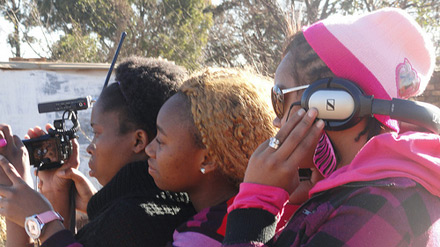
Mobile journalists, or “mojos,” in training. (Credit: Allissa Richardson/Flickr/Creative Commons License
On April 19 to 20, more than 300 journalists from around the world descended on Austin for a sold-out conference on online journalism. The International Symposium of Online Journalism, hosted by the Knight Center for Journalism in the Americas at the University of Texas at Austin, featured a host of new media gurus discussing everything from “mojos” to data visualization. A selection of takeaways: [Read more…]










